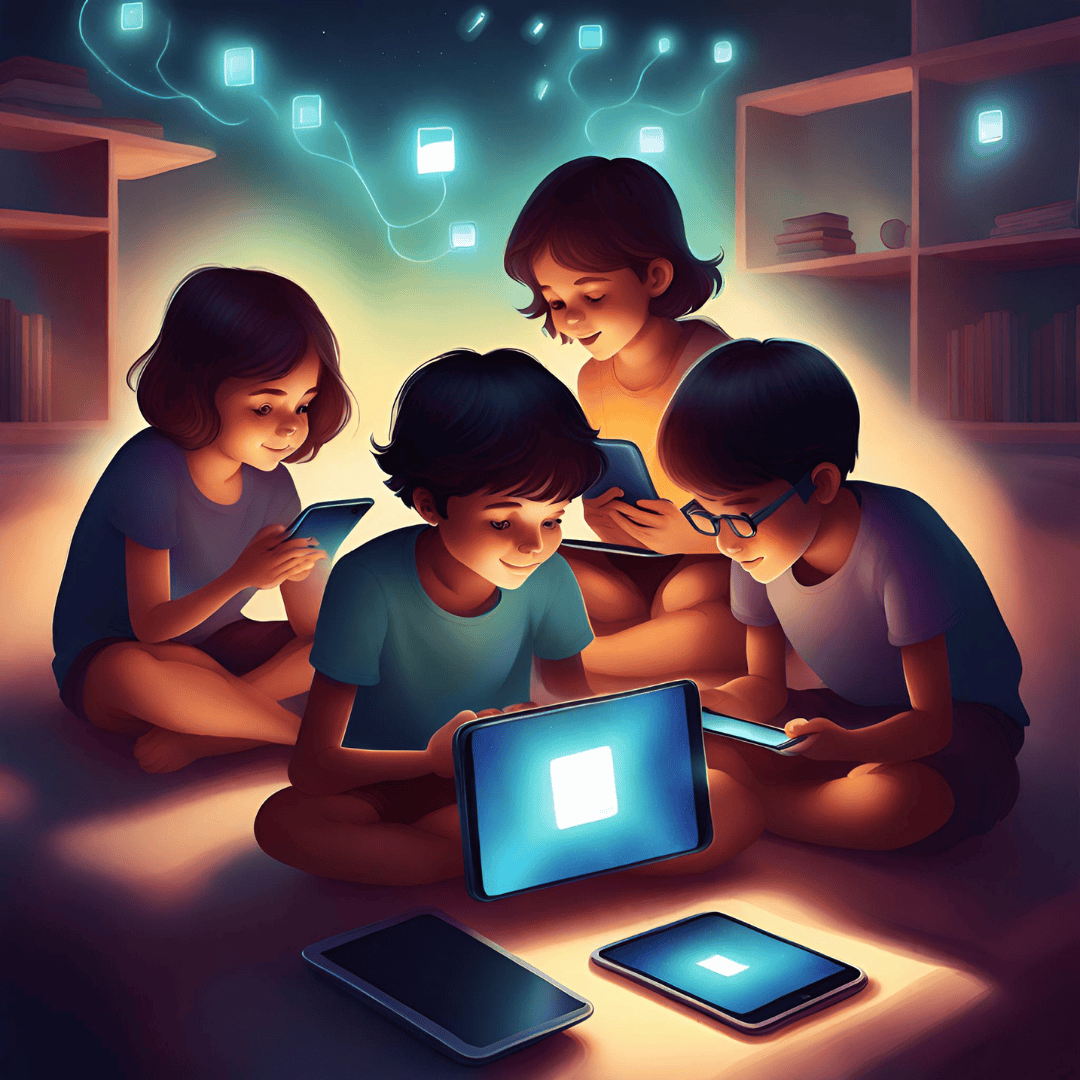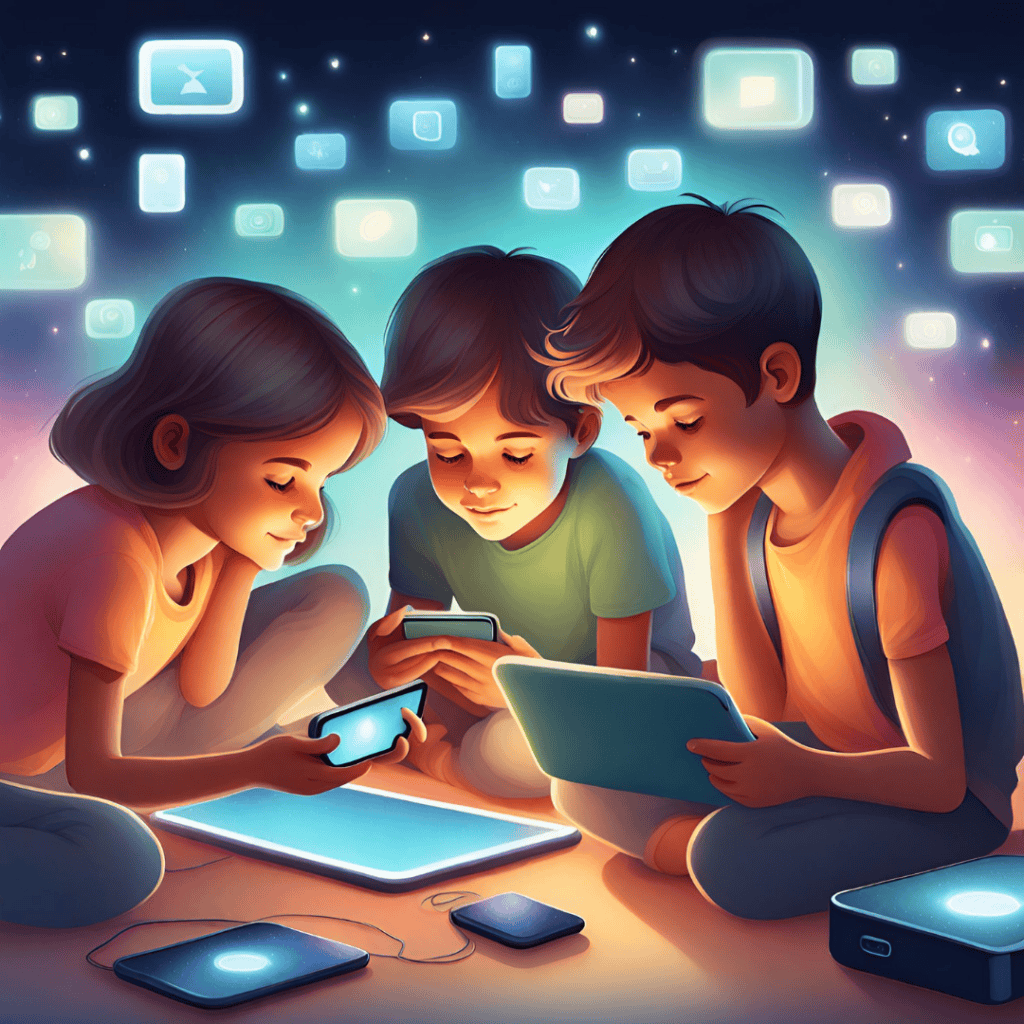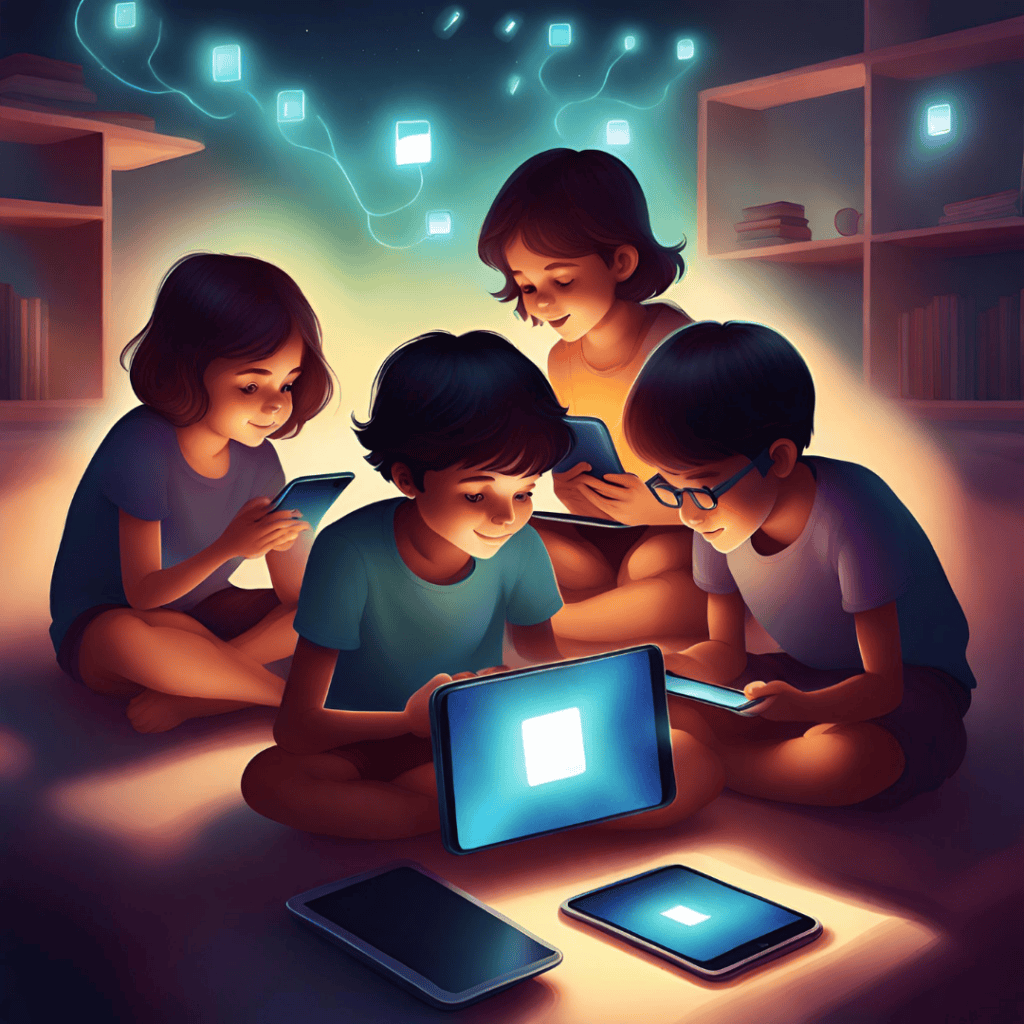Nurturing Digital Literacy in Children

With the rapid rise in technology over the past few decades, ensuring that our children are digitally literate is as crucial as teaching them to read and write. As technology becomes more ingrained in every aspect of our lives, understanding “what is digital literacy” and why it matters is a crucial concept for both parents and educators. This guide will help you grasp the concept of digital literacy, explore how you can help to develop it in your children, and highlight why your child’s early years are a critical learning period for them to master these skills. Additionally, we’ll introduce how Nutcracker can support you along this journey.
What is Digital Literacy?
Digital literacy refers to the ability to effectively and responsibly use technology and digital platforms. What is “digital literacy” beyond just knowing how to operate all of your devices? It encompasses a wide range of skills, including critical thinking, online safety, and the ethical use of digital content. For children, digital literacy means understanding how to interact with the digital world both safely and productively. It’s about knowing how to find, evaluate, and create information online while also navigating the internet with a discerning eye.

How to Develop Digital Literacy in Children?
Helping our children to develop digital literacy skills doesn’t happen overnight or on its own, it’s a gradual process that requires guidance and practice over time, just like any skill we develop.
We have gathered a few practical and effective steps that we have found really work that you can take with your children to develop their digital literacy skills:
- Model Digital Behavior: Since children often mimic the behavior of adults, it’s important to model responsible digital use. Showing them how to safely search for information, evaluate sources, limit screen time, and engage in positive online interactions. Also modeling for them when to put away their devices and have real life conversations is important too.
- Introduce Educational Tools: Utilize apps and websites that are designed to enhance digital literacy and safety for kids. These platforms often provide interactive and fun ways for children to learn about digital content creation and online safety. There are a lot of educational games that are created just for children to learn.
- Discuss Online Safety: Teach your children the basics of online privacy, such as the importance of not sharing personal information, recognizing potential online threats, and when to come to you when they see something that is suspicious. Giving your child some age appropriate examples of how predators trick children into giving out private information like name, date, location, etc is important. Open dialogue is important for your child to feel comfortable coming to you if someone makes them feel uncomfortable.
- Encourage Critical Thinking: Help your children learn to question the information they encounter online. Discuss what makes a source reliable and the importance of cross-referencing facts.
Why is Digital Literacy Important in Early Childhood?
Early childhood is a formative period where the foundations for lifelong skills are developed and mastered. From birth to 8 years of age, your child’s brain develops and retains information at a rapid pace. It is often known as the question phase because everything is new to them and they want all the answers. You may wonder why is digital literacy important at this early stage in addition to all the other things they are learning?
Children who are introduced to digital literacy early on are better equipped to navigate today’s digital world with confidence. The world is becoming more and more digital each year and it is important that your child has the skills to keep up with the demand at school, and eventually, the workplace. Children learn to think critically, communicate more effectively, and understand the ethical and moral implications of their online actions. Additionally, digital literacy for kids can enhance their learning experiences, making them more engaged and informed learners.

Digital Literacy Education Tips for Parents
As a parent, your role in fostering digital literacy is pivotal to their skill development. Here are a few tried and true tips to help you guide your children at all stages:
- Set Clear Boundaries: Establish rules for when, how, and the duration that your children can use digital devices. These rules not only prevent overuse but also encourage a more balanced approach to technology. Model this behavior with your own screen time and set off limits screen time like at family dinner or first thing in the morning. It is often said that ‘more is caught than taught’.
- Engage in Their Digital Activities: Spend time exploring the internet together with your children. This provides opportunities to discuss what they see and do online, reinforcing good practices. For instance, most free gaming apps have bright flashing ads that pop up on screen. Children are drawn to these and often click on them, or the pop up is interfering with their game and they click it without understanding what they clicked. Browsing together helps them learn not to click on every button they see. I’m sure we have all heard of a story where a child clicked on an item and magically purchased a toy or game without the parents even knowing. Teaching your children that sometimes links can be deceiving is important.
- Promote Safe Searching: Use child-friendly search engines or set up parental controls to ensure your children access age-appropriate content. Most search engines and video streaming platforms have a child profile that you can set up so that only child appropriate content can be viewed.
- Encourage Creativity: Support your children in using technology to create rather than just consume. This could be through digital drawing apps, coding games, or even simple blogging platforms tailored for kids. The online world is rapidly growing and having your child learn these skills early on will enhance their skills for later in life. Eventually, you will find your child is teaching you something new!
How Does Nutcracker Contribute to Children’s Digital Literacy?
Nutcracker is designed to equip and empower parents in helping to guide their children through today’s digital landscape. By analyzing your child’s daily online activities, Nutcracker provides insights into how they interact with digital content. This information is invaluable in understanding your child’s digital literacy level and identifying areas that may need improvement. With Nutcracker, you can ensure that your children are not only safe online but are also developing the essential skills to thrive in the digital world. As parents, our goal is to set up our children for success and Nutcracker is the platform to help you meet that important goal.
Our platform is an important tool that helps bridge the gap between parents and the complex digital environment their children are learning to navigate. By using Nutcracker, you’re not just monitoring your child’s activities—you’re actively participating in your child’s very important digital education.
Taking the First Step
Digital literacy is no longer an optional skill; it’s a necessity in today’s world. By understanding what is “digital literacy” and taking these proactive steps, you can equip your children with the skills they need to succeed. Nutcracker is here to guide and support you every step of the way, offering the tools and insights you need to nurture these critical skills in your child.
Take the necessary steps to take control of your child’s digital journey today—explore how Nutcracker can help you foster digital literacy in your home, beyond a parental control app.

